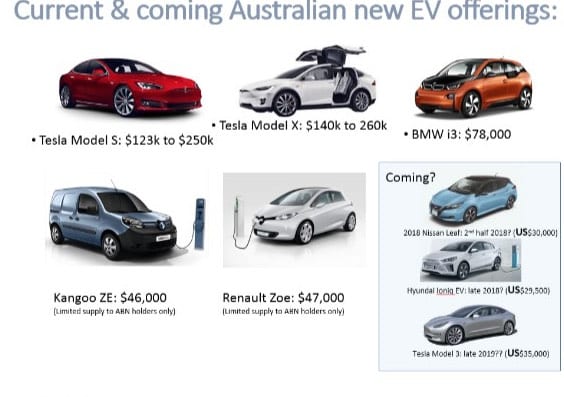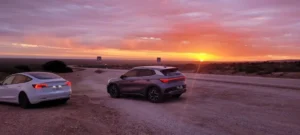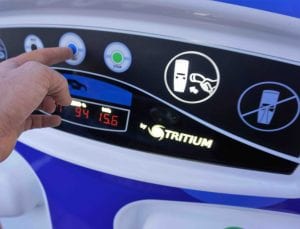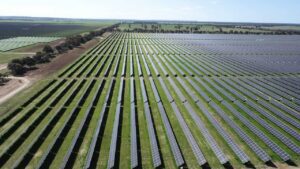*This article is the second in a two-part series from Bryce Gaton. The first installment – The What, Why and When guide to buying an electric vehicle in Australia – was published on RenewEconomy’s sister site, One Step Off The Grid.
Overseas, new EV sales currently make up from 5 per cent in California and more than 25 per cent in Norway. (And growing in both cases). In Australia, it’s less than 0.1 per cent (and falling).
Why is this the case? Well, one answer is choice!
The passenger car and SUV market in Australia is commonly divided into around 12 ‘segments’, plus light commercial vans that can be driven with a car licence.
In Australia, this equates to two ‘light passenger vehicles’ (Renault Zoe & BMW i3), one ‘upper large passenger vehicle’ (Tesla Model S), one ‘large SUV’ (Tesla Model X) plus one light commercial van (Renault Kangoo ZE van).
That’s just five in total – three of which are regarded as luxury cars, with the only ones under $50K (Zoe & Kangoo ZE) arriving in just the last few months. If something in those segments (and price ranges) does not meet your needs – bad luck for trying to choose an EV version.
Meanwhile overseas, there are many, many more EV options to choose from.
For example, to pick just two segments in the USA: there are two EVs in the ‘micro’ segment (Smart for two EV, Fiat 500e) and six in the ‘small’ segment! (2018 Leaf, Ford Focus EV, Hyundai Ioniq electric, Kia Soul EV, Mercedes Benz 250e, Volkswagen e-Golf).
Mind-you, some are not available in all US states. Those not available across the US are called ‘compliance cars’ (such as the Fiat 500e and Ford Focus EV) and are sold only in states that mandate sales of EVs. However they do prove that the major manufacturers will build EVs (if sometimes grudgingly).
On top of this, the three most anticipated EVs for range and price are already available in the US – these being the Chevrolet Bolt, 2018 Nissan Leaf and the Tesla Model 3.
In Europe there are even more EVs models available.
For light commercial vans, they have a choice we in Australia can only dream of: the Renault Kangoo ZE (in several sizes, not just the 650kg payload version offered in Australia), the Renault Master ZE in six versions (payload 975 – 1128kg), the Nissan e-NV200 van (770kg payload) and the Citroen Berlingo Electric van (636kg payload).
Europe also has had the Renault Zoe since 2013, where it has been the biggest selling EV since 2015. Sadly, it took till late 2017 for the Zoe to reach Australian shores (and even then, only in limited quantities).
The Bolt (rebadged as the Opel Ampera-e) and the 2018 Leaf are both on sale in Europe too – and the Model 3 should reach the left-hand drive European market late this year.
Summing up – perhaps the following two graphics show the stark difference between Australia and the rest of the world for new EV options:
By 2020, there will be over *100* #BEVs on the market #bnefsummit @BloombergNEF @climate #EVs pic.twitter.com/EPJx4FgdXk
— Nick Albanese (@NickRAlbanese) April 26, 2017
- prices quoted are before the addition of On Road Costs (ORCs).
- ‘Coming’ EV prices are in US dollars
- The table does not show the recently announced Jaguar Land Rover offering, the all-electric SUV I-Pace, which is expected to retail in Australia from October this year from around $120,000.
- The table does not show the Hyundai Kona, another electric SUV that should be available in Australia in late 2018 (price to be confirmed).
One can speculate on the reasons (or start conspiracy theories) for why the major manufacturers won’t bring EVs to the Australian market – but perhaps the following results from a recent KPMG survey of global auto executives puts it in perspective. (Source: KPMG Global Automotive Executive Survey, 2017).
The major findings relating to EV attitudes of the 953 surveyed automotive executives were:
- 62% of executives absolutely or partly agree that BEVs will fail due to infrastructure challenges.
- 76% of the executives see ICEs as still more important than electric drivetrains for a very long time.
- 50% of executives believe battery electric vehicles to be the key automotive trend going forward – but only because of the regulatory environment dictating it.
- 78% of executives absolutely or partly agree that FCEVs (fuel cell EVs) will be the real breakthrough for electric mobility – explained in part by execs believing in fuel cells due to their be their strong attachment to the existing infrastructure and traditional vehicle applications*.
One can conclude from these results that, where government is not pushing the manufacturers through one or more of:
- vehicle emissions standards (mostly everywhere other than Australia),
- incentives (eg: UK, Norway, Canada, US in general and California in particular),
- sales targets (China) or
- outright end dates for ICE sales (legislated dates already in Norway, Holland, India, France, UK, and more to come);
…then ICE vehicles will be offered by default.
Therefore, as Australian government policy does none of these things – until one or more of the above regulatory environment changes are made, we will be stuck with little EV choice. (In other words, it is more of a ‘heel-dragging’ exercise than anything else!)
* It is worth noting here that Elon Musk of Tesla terms fuel cells as ‘fool cells’ as he believes they are a dead-end technology. In part, this is explained in the graphic below: (source: https://phys.org)
Bryce Gaton is the National Newsletter Editor for the Australian Electric Vehicle Association (AEVA) and is a qualified secondary science educator as well as a Registered Electrical Contractor and electrical trade teacher. He has been working in the EV sector for 10 years, and currently works part-time for the Melbourne School of Engineering as their EV safe work practice trainer/supervisor. He regularly writes on EV topics for and on behalf of both the AEVA and ATA. Bryce also owns and drives two EVs – a Nissan Leaf for commuting and a converted Citroen van for work.












